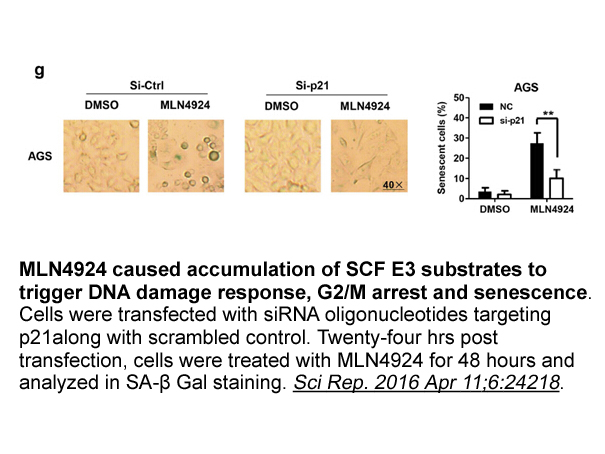Archives
Irinotecan N methyl d aspartate NMDA receptor antagonists
N-methyl-d-aspartate (NMDA) receptor antagonists, such as MK-801 and phencyclidine, induce cognitive dysfunction in both mice and humans [18]. In addition, antipsychotic drugs ameliorate MK-801-induced cognitive dysfunction; therefore,  the acute application of MK-801 can be used as an animal model of psychiatric disorders [19]. In the present study, we investigated the effects of genetic deletion or pharmacological inhibition of CRTH2 on MK-801-induced cognitive dysfunction and provide the first report that CRTH2-mediated signaling is involved in MK-801-induced cognitive dysfunction. In addition to the role of CRTH2 in cognition in mice, we further investigated the potential involvement of CRTH2 in human cognitive function via an association study between genetic polymorphisms of CRTH2 and cognitive function or schizophrenia. We found that single nucleotide polymorphisms (SNPs) in the CRTH2 gene are weakly associated with human cognitive
the acute application of MK-801 can be used as an animal model of psychiatric disorders [19]. In the present study, we investigated the effects of genetic deletion or pharmacological inhibition of CRTH2 on MK-801-induced cognitive dysfunction and provide the first report that CRTH2-mediated signaling is involved in MK-801-induced cognitive dysfunction. In addition to the role of CRTH2 in cognition in mice, we further investigated the potential involvement of CRTH2 in human cognitive function via an association study between genetic polymorphisms of CRTH2 and cognitive function or schizophrenia. We found that single nucleotide polymorphisms (SNPs) in the CRTH2 gene are weakly associated with human cognitive  function and schizophrenia.
function and schizophrenia.
Materials and methods
Results
Discussion
Previous studies have demonstrated that prostanoid signaling in the Irinotecan is involved in cognitive function [8]; however, there is little evidence to indicate that the PGD2-CRTH2 signaling pathway is involved in cognitive function. The present study demonstrated that the genetic deletion and pharmacological inhibition of CRTH2 abolishes MK-801-induced cognitive dysfunction in the NORT. We also demonstrated that the inhibition of COX-1, but not COX-2, eliminates MK-801-induced cognitive dysfunction. Interestingly, CRTH2 is involved in MK-801-induced neural activation in the PVN. These findings suggest that the COX-1-PGD2-CRTH2 signaling pathway plays a role in cognitive dysfunction in pathological conditions in mice. Furthermore, to investigate whether CRTH2 is also involved in cognitive function in humans, we performed genetic association studies using SNP analysis to determine the relationship between the CRTH2 gene and cognitive function or schizophrenia in humans (Table 1, Table 2, Table 3). The findings suggest that the CRTH2 gene is associated with human cognitive function and schizophrenia (Table 1, Table 2, Table 3). MK-801-induced cognitive dysfunction is thought to be related to central hypoglutamatergic function [41]; thus, we assume that central but not peripheral CRTH2 signaling may be predominantly involved in MK-801-induced cognitive dysfunction. However, it remains unclear whether CRTH2 expressed in peripheral tissues plays a role in cognitive function.
It has been demonstrated that E prostanoid receptor 1 contributes to the susceptibility to repeated social defeat stress [42] and that E prostanoid receptor 2 in hippocampal neurons is involved in synaptic plasticity [43]. Interestingly, D prostanoid receptor 1 is increased in the frontal cortex in patients with Alzheimer’s disease and a mouse model of Alzheimer’s disease [44]. These findings suggest that prostanoid signaling through the different prostanoid receptors is involved in cognitive function in physiological and pathological conditions. Currently, it is unclear how these PG receptors coordinately regulate cognitive function. Therefore, it is important to precisely determine the spatial distribution and temporal expression of prostanoid receptors in the brain and the specific cell types and neural circuits involved.
In the present study, we demonstrated that COX-1, but not COX-2, is involved in MK-801-induced cognitive dysfunction. It has been reported that microglial COX-1 can underpin susceptibility to cognitive deficits [45] and that COX-1 is increased in the brains of aged patients with schizophrenia [46]. These findings suggest that COX-1 is involved in cognitive dysfunction in various pathological conditions. By contrast, we have previously demonstrated that COX-2-mediated CRTH2 signaling contributes to the emotional impairment induced by acute inflammation [16]. Currently, the molecular significance of COX-1 and COX-2 remains unclear. Future studies should investigate the differential roles of COX-1 and COX-2 to clarify the contribution of CRTH2-mediated signaling in higher brain functions.